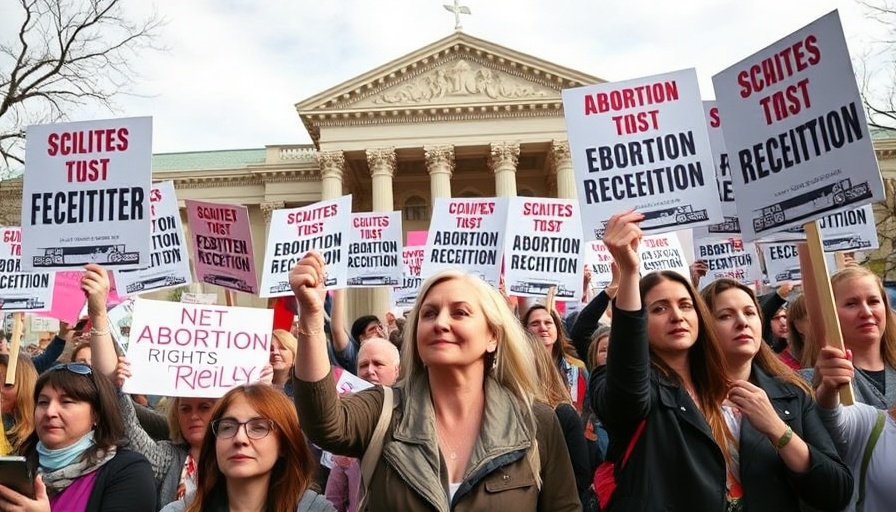
Understanding the Legislative Landscape in Wyoming
The political environment surrounding healthcare in Wyoming is heating up once again. Recently, a bill labeled Senate File 125 has sparked significant debate across the state, focusing primarily on abortion. But its implications stretch far beyond reproductive health. This piece of legislation proposes to redefine what constitutes healthcare, potentially impacting critical treatments like chemotherapy and essential surgeries. The bill declares that any treatment causing harm to vital systems or organs cannot be seen as healthcare. This broad language raises alarms among medical professionals and patients alike.
The Ripple Effects on Cancer Treatment
Imagine facing a cancer diagnosis, which is often a battle against time, and being presented with barriers to necessary treatments. Chemotherapy, a primary method for combating cancer, frequently involves risks and side effects that could be interpreted as "causing harm". As lawyer Abigail Fournier noted, many medical treatments come with significant risks yet are deemed essential for achieving better health outcomes. This potential bill could create a chilling effect, preventing patients from receiving life-saving therapies due to its definition of harm.
The Constitutional Context
In 2012, Wyoming voters approved an amendment that emphasized individuals' rights to make their own healthcare decisions. Critics of Senate File 125 argue that it contradicts this valuable legislation by trying to change the very underpinnings of healthcare definitions. Even as state senator Cheri Steinmetz claims she is not pursuing a constitutional change, altering the terminology could inadvertently affect these established rights, undermining personal choice and autonomy in health decision-making.
Current Events and Ongoing Legislation in Wyoming
The legislative effort to restrict access to abortion—encapsulated by this new bill—comes on the heels of a previous ruling that struck down Wyoming's abortion ban. This situation portrays a troubling trend: as courts resolve critical issues, lawmakers may attempt to push through new restrictions that could fundamentally alter healthcare access for many residents. Other proposed bills, including requirements for trans-vaginal ultrasounds before obtaining abortion medication, are part of a larger narrative concerning women’s health rights and healthcare autonomy in the state.
Public Reaction and Social Responsibility
The potential impacts of Senate File 125 resonate deeply with the public, especially with advocates for women's rights and healthcare access. Many fear that the bill’s vague language could not only hinder access to abortions but could also deter individuals from seeking necessary medical care due to the threat of unintended consequences. This situation underscores the importance of public engagement in legislative processes, urging citizens to express their concerns and advocate for clear, equitable healthcare policies.
What Does This Mean for the Future?
As legislative debates continue, the future of healthcare access in Wyoming hangs in the balance. The reclassification of healthcare poses significant risks, potentially leading to severe restrictions on essential treatments for vulnerable populations. Understanding these shifts is crucial for all stakeholders, from policymakers to residents, as they navigate the implications on personal health. As healthcare debates heat up, it will be critical to remain informed and engaged.
Takeaway: The Importance of Advocacy
Though no direct call to action exists, the developments surrounding Senate File 125 reveal an essential truth: engaged citizens have the power to influence change. By learning about the intricacies of legislation and its impact on healthcare access, individuals can help steer the discourse toward more inclusive and informed policies in Wyoming and beyond. Ensuring healthcare remains equitable and accessible is a collective responsibility that requires vigilant advocacy against any legislation that could threaten those rights.
 Add Row
Add Row  Add
Add 



Write A Comment